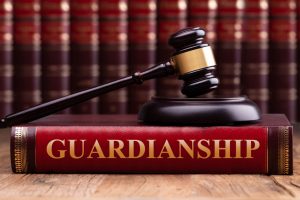
Guardianship Litigation & Administration
When someone is unable to make decisions concerning their finances or healthcare due to their age or disability, Maryland law allows the court to appoint a guardian. Circumstances in which the appointment of a guardian may be beneficial include:
• An elderly family member who can no longer manage their own financial and healthcare decisions.
• An individual who suffers from mental health issues.
• An adult child with a physical or mental disability
• A minor child whose parents are unable to act on the child’s behalf.
Once appointed by the court, the guardian is charged with taking on various decision-making responsibilities that the minor or disabled adult is unable to take on for themselves.
What are the Two Types of Guardianship in Maryland?
The following two types of guardianship are recognized in Maryland:
• A Guardian of the Person makes decisions regarding the minor or disabled adult’s healthcare and living arrangements. A Guardian of the Person may be responsible for communicating with the minor or disabled adult’s doctors and other healthcare providers, consenting to medical treatment, determining an appropriate residence for the minor or disabled adult, and working with the Guardian of the Property to ensure the minor or disabled adult’s needs are met.
• A Guardian of the Property is granted authority to make decisions regarding the minor or disabled adult’s finances. This may include responsibility for gathering the minor or disabled adult’s assets and income, paying the minor or disabled adult’s bills, applying for government benefits on behalf of the minor or disabled adult (such as Medicaid or Social Security benefits), filing taxes, and communicating with the Guardian of Person to identify the needs of the minor or disabled adult.
The court can appoint one person to serve as both guardian of the person and guardian of the property, or two different people for each role.
Guardianship Administration
After a guardian is appointed by the court, they are responsible for filing annual reports with the court. The Guardian of the Person provides the court with information concerning the minor or disabled person’s health and well-being. The Guardian of the Property provides the court with an accounting detailing the minor or disabled adult’s income, assets, and expenses.
Once a guardianship is established, a guardian may return to court in the event circumstances change. For example, a guardian may ask the court for authority to make end-of-life medical decisions, to sell a minor or disabled adult’s property, or to terminate the guardianship when the minor reaches adulthood or the disabled adult is no longer disabled.
Applying for and administering a guardianship can be a time-consuming and complex process which may be daunting to many people. The attorneys at Souza Roy utilize our extensive experience to guide their clients through the guardianship application and administration process.


